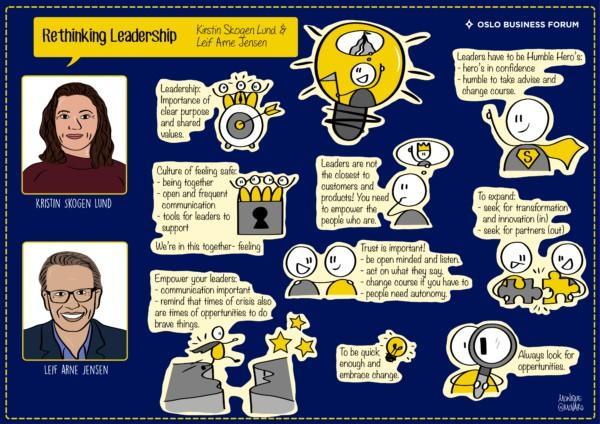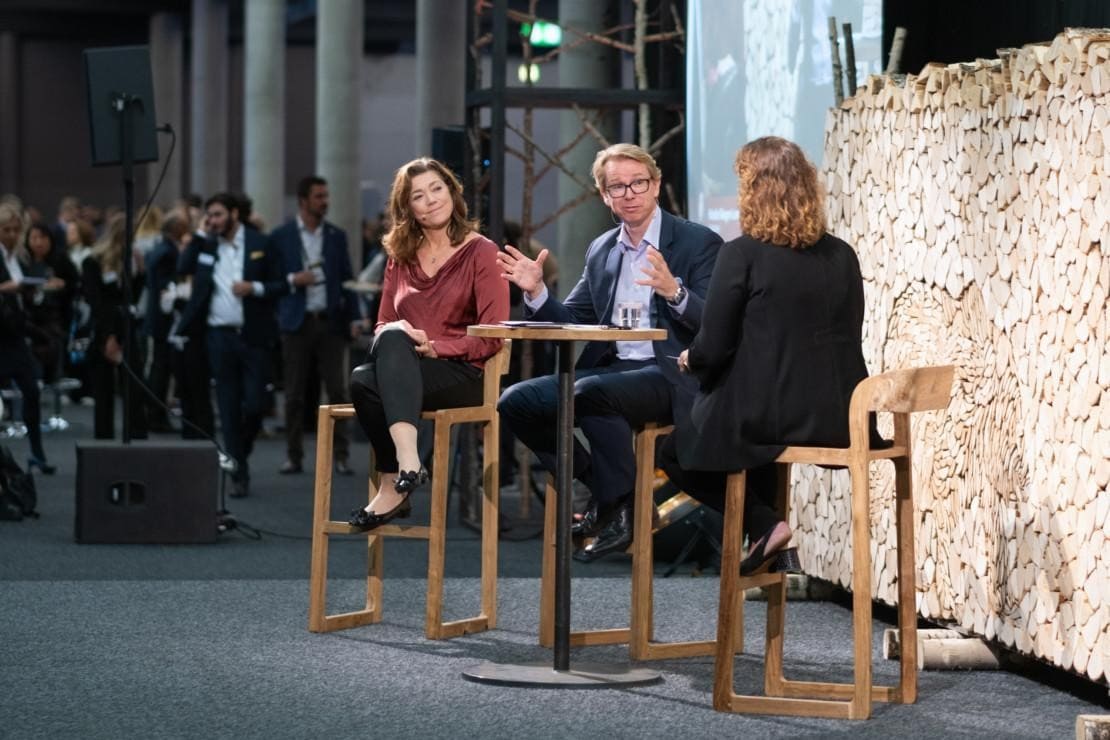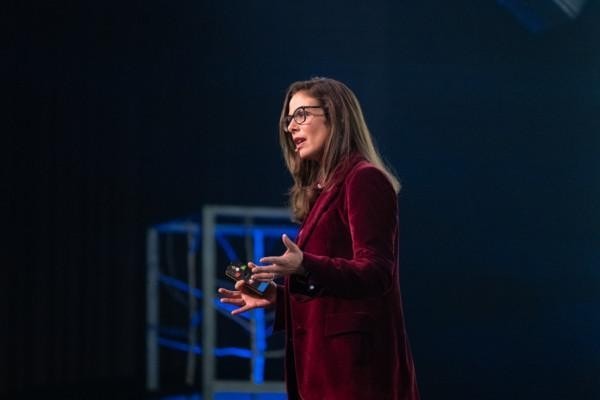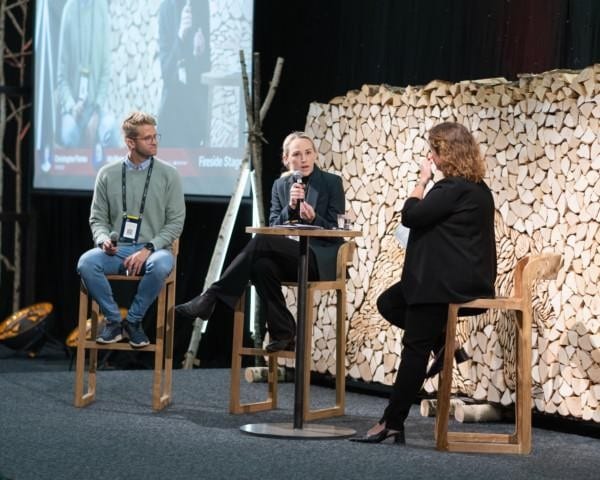11Oct2021
Kristin Skogen Lund, Group CEO of Schibsted, and Leif Arne Jensen, CEO at PwC Norway, talked about leading in uncertain times and running companies that embrace change and innovation.
Leadership Learnings from the Pandemic
The conversation kicked off with the challenges they faced during the pandemic. Kirstin described the experience somewhat like a roller coaster. “It was shocking at first, we also had a huge drop in our revenues at the beginning which has since picked up very nicely. It’s hard to remember now, but there were a lot of uncertainties back in the spring of last year. We didn’t know how long it would last, how deep we would fall.”
Leif Arne admitted he learned a lot, in particular, he highlighted the importance of having a clear purpose and shared values during a crisis. “We are a people business”, he said. That’s why, early on, he made the decision to protect the people who worked at his company at all costs. As a consequence, no one was laid off, which was key for performance. In fact, since the start of the pandemic, PwC has recruited and onboarded almost 700 employees. The second consequence of that early decision was that it created an environment where people could be safe and thrive.
On a similar note, Kirstin recalled that “we decided and declared that we would not put anybody on temporary or permanent leave despite the fact that we lost revenue in the beginning. This made employees realize that we really wanted to be in this together.” In fact, a survey at Schibsted with 3,000 employees showed that 96% said that the company kept them safe during the pandemic. According to Kirstin, the key to achieving those results was the sense of being together, leading as a team and having very frequent and open communications, as well as setting up support systems that provided access to all kinds of different help that anyone could need.
Leadership Is a Team Play
Another topic that was raised was that, as top leaders, both Kirstin and Leif Arne rely on other leaders and trust a value chain with different stakeholders. How do they do that? Leif Arne pointed out that “leadership is a team play”, and it is crucial to build trust, focus on how people perform together, and empower them with confidence and autonomy. “In a complex world with a lot of uncertainty, leaders have to embrace what seems to be opposing traits to succeed. On one hand, they have to act like heroes, exuding confidence, while on the other hand, they have to be humble, be able to take advice, and change course. In sum, they have to be humble heroes”, Leif Arne explained.
Similarly, Kirstin said that since leaders are not the ones closest to the customer and product, they need to empower the people who are. These people are the innovators who come up with suggestions for improvement. “As a leader, you need to empower everybody to have that sense of responsibility; not just to fill their role but to actually shape it and expand it. And the sum of all of that becomes so much greater than any input from top management. It’s the only way to run a company these days, it’s the only way to be quick enough, it’s the only way to embrace enough change and innovation.”
Looking for Future Opportunities
Kirstin also referred to the acquisition of eBay Classifieds for 9.2 billion dollars. “We want to ideally have even a larger impact on the world through our products and services. We can’t do it alone, so sometimes we have to seek out entrepreneurs or others that we can partner with or acquire. Sometimes we need to seek inward, to extract more of that innovation and initiatives from within. And then sometimes we do transformational things, for example, the eBay deal, and that happens once in a while, is more a special process.”
Near the end of the talk, Leif Arne commented that a very important topic in any boardroom at present is how to handle the climate crisis. With 25,000 clients, PwC is helping many of them to address this challenge. And Kirstin concluded with these inspiring words: “When you see all the trends that impact us, it’s easy to be scared because the world is changing fast and is very competitive; but never get on the defensive side of things, always turn it around into, how can this be an opportunity?”

Sketchnote by Monique van Rooyen


